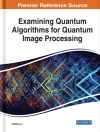This highly comprehensive handbook provides a substantial advance in the computation of elementary and special functions of mathematics, extending the function coverage of major programming languages well beyond their international standards, including full support for decimal floating-point arithmetic. Written with clarity and focusing on the C language, the work pays extensive attention to little-understood aspects of floating-point and integer arithmetic, and to software portability, as well as to important historical architectures. It extends support to a future 256-bit, floating-point format offering 70 decimal digits of precision.
Select Topics and Features: references an exceptionally useful, author-maintained Math CW website, containing source code for the book’s software, compiled libraries for numerous systems, pre-built
C compilers, and other related materials; offers a unique approach to covering mathematical-function computation using decimal arithmetic; provides extremely versatile appendices for interfaces to numerous other languages: Ada, C#, C++, Fortran, Java, and Pascal; presupposes only basic familiarity with computer programming in a common language, as well as early level algebra; supplies a library that readily adapts for existing scripting languages, with minimal effort; supports both binary and decimal arithmetic, in up to 10 different floating-point formats; covers a significant portion (with highly accurate implementations) of the U.S National Institute of Standards and Technology’s 10-year project to codify mathematical functions.
This highly practical text/reference is an invaluable tool for advanced undergraduates, recording many lessons of the intermingled history of computer hardw
are and software, numerical algorithms, and mathematics. In addition, professional numerical analysts and others will find the handbook of real interest and utility because it builds on research by the mathematical software communityover the last four decades.Зміст
Introduction.- Iterative Solutions and Other Tools.- Polynomial Approximations.- Implementation Issues.- The Floating-Point Environment.- Converting Floating-Point Values to Integers.- Random Numbers.- Roots.- Argument Reduction.- Exponential and Logarithm.- Trigonometric Functions.- Hyperbolic Functions.- Pair-Precision Arithmetic.- Power Function.- Complex Arithmetic Primitives.- Quadratic Equations.- Elementary Functions in Complex Arithmetic.- The Greek Functions: Gamma, Psi, and Zeta.- Error and Probability Functions.- Elliptic Integral Functions.- Bessel Functions.- Testing the Library.- Pair-Precision Elementary Functions.- Accuracy of the Cody/Waite Algorithms.- Improving Upon the Cody/Waite Algorithms.- Floating-Point Output.- Floating-Point Input.- Appendix A: Ada Interface.- Appendix B: C# Interface.- Appendix C: C++ Interface.- Appendix D: Decimal Arithmetic.- Appendix E: Errata in the Cody/Waite Book.- Appendix F: Fortran Interface.- Appendix H: Historical Floating-Point Architectures.- Appendix I: Integer Arithmetic.- Appendix J: Java Interface.- Appendix L: Letter Notation.- Appendix P: Pascal Interface.
Про автора
Dr. Nelson H.F. Beebe is a Research Professor and Software Specialist in the Department of Mathematics at the University of Utah, USA. He has a diverse background in chemistry, physics, mathematics, computer science, systems management, and typography, having studied, worked, and taught in three countries. He has written extensive software projects in numerous programming-language, operating-system, and hardware environments. His bibliographic database work has exposed him to a wide range of journals on current research.












